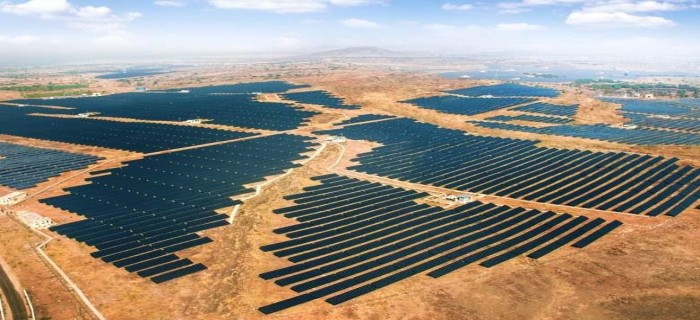
Rajasthan Approves 25 GW Solar Park, Largest in India
In a groundbreaking move toward achieving India's renewable energy goals, the Rajasthan government has approved the development of the country’s largest solar park, with an enormous capacity of 25 gigawatts (GW). This ambitious project, to be established in Jaisalmer and Bikaner, will significantly boost India's solar energy production, playing a crucial role in meeting the nation’s target of 280 GW solar capacity by 2030. Rajasthan, known for its abundant sunlight and vast stretches of unused desert land, has emerged as a solar energy hub, with this latest initiative further solidifying its leadership in the sector. The project will be spread across 60,000 hectares of barren desert land, ensuring minimal land-use conflicts and optimizing solar power generation.
With an estimated investment of ?1.2 lakh crore (~$14 billion) from both public and private sector entities, the solar park is expected to provide clean electricity to millions of homes, reduce India's dependence on fossil fuels, and contribute to a significant reduction of carbon emissions—approximately 50 million metric tons annually. To facilitate the seamless integration of this massive power output into the national grid, the government is also planning to develop a new Green Energy Corridor, which will transmit electricity to industrial hubs in Delhi, Haryana, Punjab, and Uttar Pradesh. Additionally, the project is set to generate over 100,000 direct and indirect jobs, providing a major boost to the regional economy.
The development of this solar park will be executed in multiple phases, with the first 5 GW phase expected to be operational by 2027 and the full 25 GW capacity projected to be achieved by 2032. Rajasthan’s leadership in solar energy is not only driving India’s transition toward sustainable and self-reliant energy production but also positioning the country as a global leader in solar power generation, competing with major renewable energy nations like China and the United States. The successful completion of this project will be a milestone in India's efforts to combat climate change, enhance energy security, and promote large-scale clean energy adoption.

.gif)
.jpeg)
leave your comment